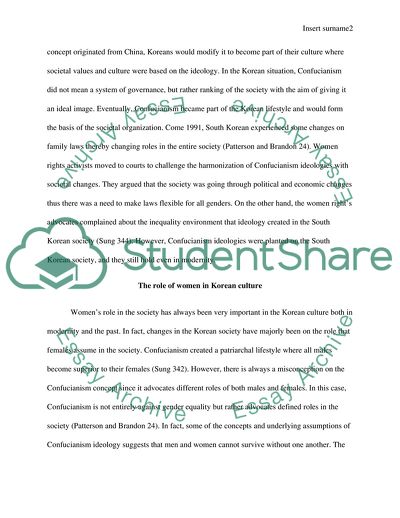Cite this document
(How Confucianism Influenced Gender Equality in South Korea Coursework, n.d.)
How Confucianism Influenced Gender Equality in South Korea Coursework. https://studentshare.org/gender-sexual-studies/1853649-how-confucianism-influenced-female-equality-in-south-korea
How Confucianism Influenced Gender Equality in South Korea Coursework. https://studentshare.org/gender-sexual-studies/1853649-how-confucianism-influenced-female-equality-in-south-korea
(How Confucianism Influenced Gender Equality in South Korea Coursework)
How Confucianism Influenced Gender Equality in South Korea Coursework. https://studentshare.org/gender-sexual-studies/1853649-how-confucianism-influenced-female-equality-in-south-korea.
How Confucianism Influenced Gender Equality in South Korea Coursework. https://studentshare.org/gender-sexual-studies/1853649-how-confucianism-influenced-female-equality-in-south-korea.
“How Confucianism Influenced Gender Equality in South Korea Coursework”. https://studentshare.org/gender-sexual-studies/1853649-how-confucianism-influenced-female-equality-in-south-korea.


